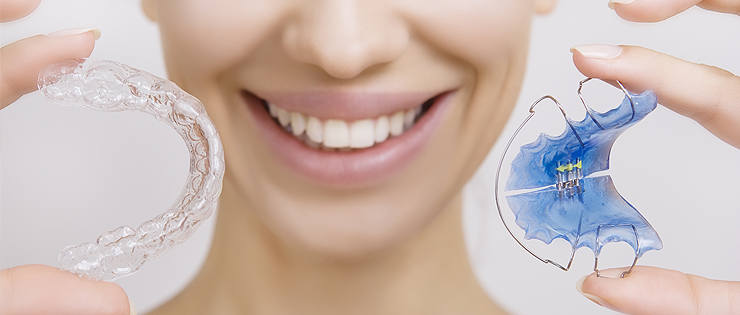
"How long do I have to wear my retainers for?" This is the first question I hear when someone gets their braces off. After months and months of sporting dental hardware, it's not surprising that people are keen to have their mouths free of metal. And it's not just for teenagers any more - 62% of Australian adults say they'd consider orthodontic treatment to correct their smile. So how long do you really need to keep wearing your retainers? 6 months? A year? The answer is pretty disappointing:
You need to wear your retainers for as long as you want your teeth to stay straight.
Child, teen, or adult: it doesn't matter when your orthodontic treatment is done, retention is for life. Your teeth are not fixed to your jaw bones, which is fortunate because this is what gives us the ability to move them with braces. Without being held in place by retainers, your post-braces teeth will drift back to the most natural position they can find. This is unlikely to be all the way back to where they started, but there will be some relapse.
So you're stuck wearing retainers for life. What are your options? Thanks to human nature there's a low rate of compliance when retainers can be taken in and out, so the most effective retainers are fixed into your mouth. What's this?! I just spent 2 years with brackets and wires in my mouth, and now you want to put in MORE WIRE? It seems inconvenient, but bonded retainers are actually very unobtrusive, especially when compared with braces. They take the form of a thin piece of wire which is bonded in place behind your front teeth. This means they're tucked away where nobody can see them, and they don't really get in the way of eating or brushing. They do make flossing your front teeth a little more difficult, but it's a small price to pay when you're guaranteed to keep your front teeth straight.
The other option is to go for removable retainers which are worn only at night. The problem is, when they're out of your mouth they can be lost, broken, or eaten by your dog, (don't laugh, it happens more often than you'd think). These can be made of clear plastic, or a combination of plastic and wire like some "plates" that are used to straighten teeth. Being removable also makes them seem optional. It's so easy to go "just one night" without wearing them. Which turns into two nights. Which turns into "Where did I even put them?" six months later. They are a great form of retention as they cover all of your teeth to prevent relapse, but in order to work they need to be actually used.
Want to keep your teeth straight after orthodontic treatment? Wearing some form of retainer for life is the only way to guarantee it. Your orthodontist will recommend the best option for your individual case, but it will serve you well to have some idea of whether you think fixed or removable retainers are for you.
Related links: